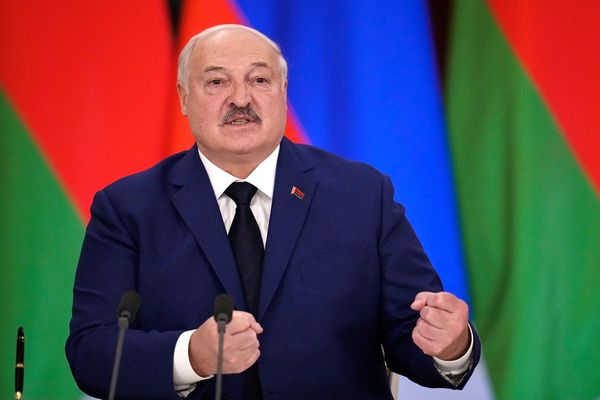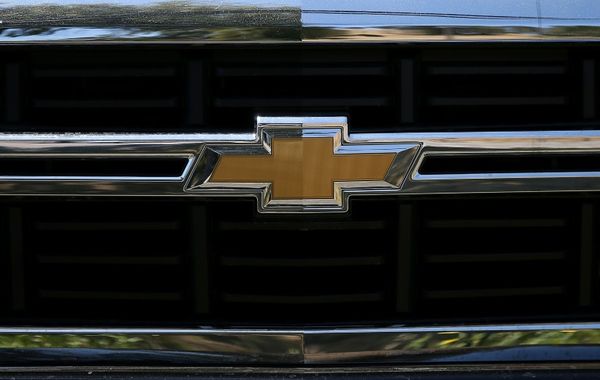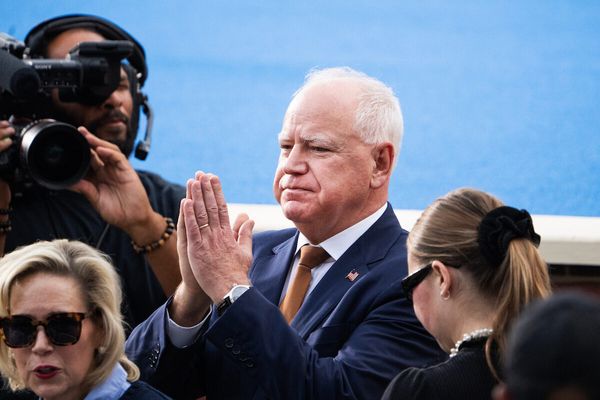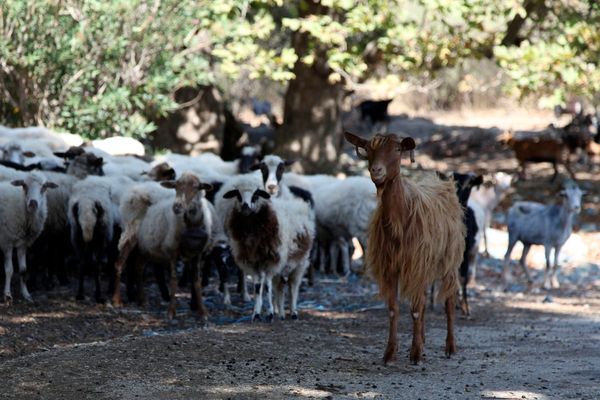Tesla and BYD are the world's largest electric-vehicle makers.
In 2022, China EV and battery giant BYD's vehicle sales raced ahead of Tesla's and are now well more than twice as high, three times as much in Q4 2024. For all-battery electric vehicles (BEVs), BYD has seized the crown in the past two quarters.
Tesla earnings plunged in Q1, missing already-lowered estimates, but Elon Musk remains bullish on robotaxis in Austin this June.
BYD followed up with booming growth. Net income passed Tesla's for the first time, taking the lead in yet another key metric. April EV sales were strong, with fully electric battery vehicles once again. Even so, the low-cost leader has launched a new China EV price war.
Tesla stock is down in 2025, but has rebounded on robotaxi hopes, clearing an aggressive entry and now setting up another. BYD stock, up sharply in 2025 amid booming growth, has broken out to new highs.
Tesla Vs. BYD Sales
Tesla delivered 336,681 EVs in Q1, down 13% vs. a year earlier and the lowest since Q2 2022. They fell 32.1% vs. Q4's record 495,570 EVs. Q1 deliveries once again missed analyst estimates, which had been cut substantially during the quarter.
Tesla China sales appeared to edge higher vs. a year earlier, but those tend to be lower margin. U.S. and European sales have tumbled on Musk's brand woes.
The Cybertruck, Tesla's first new passenger EV in the past five years, is a bust. Overall sales of the Model S, X and Cybertruck were just 12,881.
Tesla also deployed 10.4 gigawatt-hours of energy storage products in Q1, down slightly vs. Q4's record 11 GWh but up 156% vs. a year earlier.
Meanwhile, BYD sold 1,000,804 EVs in the seasonally slow Q1, down 34.3% vs. Q4's record 1,524,270 vehicles. But they jumped 59.8% vs. a year earlier. Exports and overseas sales, which tend to be higher margin, rose sharply.
Passenger BEV sales were 416,388, easily beating Tesla for a second straight quarter.
BYD reported April sales of 380,089, up 0.7% vs. March and 21.3% vs. a year earlier. The EV giant is shifting from older models to newer EVs, which have driver-assist systems standard. Overseas sales hit another record, at 79,086.
Notably, BYD's BEV sales outpaced PHEV sales for the first time since January 2024. BEV sales grew 45.8% vs. a year earlier to 195,740.
Tesla does not release monthly sales, but European sales continued to plunge in April vs. a year earlier. China deliveries are lagging too, with Tesla facing mounting competition from BYD, XPeng and others. Xiaomi just unveiled its YU7 crossover to take on the Model Y. Its SU7 sedan has outsold the Model 3 in China.
BYD Launches New Price War
Meanwhile, BYD is offering 10%-30% discounts on its BYD-branded EVs through June, signaling a new price war. As the low-cost leader due to in-house production and squeezing suppliers due to its heft, the EV giant puts heavy pressure on rivals. Plus, BYD has the advantage of booming overseas sales, which boast significantly higher margins.
New Tesla Model Y, Other Vehicles
Tesla began deliveries of the new Model Y in late February-early March, but is already offering cheap financing. Wait times are low.
Tesla told Austin workers on the Model Y and Cybertruck lines to stay home for Memorial Day week, Business Insider reported, amid weak demand and rising inventories.
Tesla's 'Affordable' EV
The EV giant in 2024 ditched long-touted plans for a "next-generation" EV and "revolutionary" manufacturing. Tesla now plans "affordable vehicles," using existing production lines.
In the Q1 earnings release, Tesla stuck to its plan for the first "affordable" EV to begin production by mid-year, though that might imply mass output months later. On the earnings call, management said the cheaper EV line will "resemble" the Model Y or 3. Several reports had stated that the first cheap EV would be a stripped-down Model Y.
Tesla's EV pipeline is thin, raising concerns about demand in 2026 and beyond.
As for the Tesla Semi, the EV giant has delivered a few dozen to PepsiCo and a few other customers. The specs and price are unknown, though the price tag reportedly has risen. Tesla recently said it expected mass production in 2026, but Semi timelines have often slipped by a factor of years.
BYD Expansion
BYD sells BEVs and PHEVs from below $10,000 to $150,000, including its premium Denza, FangChengBao and Yangwang brands, with a steady stream of new or upgraded models.
Improved driver-assist systems and faster charging also expanding to more of BYD's lineup.
Overseas sales are surging, a trend that will likely continue. Export logistics have improved, in terms of ships and rail, with several more roll-on/roll-off ships coming into service this year.
BYD's Thailand plant, its first full-assembly plant outside of China, is still ramping up, and will export some vehicles to neighboring countries. There's also a knockdown plant in Uzbekistan, which puts together partially assembled vehicles.
A Brazil factory will open in late 2025. The EV giant should have a Hungary plant up and running by the start of 2026. BYD also is building or plans to build factories in Indonesia, Turkey, Cambodia and Pakistan.
The EV giant had been looking to choose a Mexico site. However, both Trump and Beijing have concerns.
BYD makes EV buses in California but says it has no plans to enter the U.S. passenger EV market, amid import tariffs and political opposition.
Tesla Batteries
Tesla traditionally has not mass-produced its own batteries. For lithium-ion batteries, its joint venture partner Panasonic makes the cells and Tesla packages them. It also buys lithium-ion batteries from South Korea's LG. Tesla also buys a lot of lithium iron phosphate (LFP) batteries from China's CATL as well as some LFP batteries from BYD.
Tesla is working on 4680 batteries, first touted at the 2020 Battery Day. The 4680 batteries are standard lithium-ion chemistry, but the EV giant claimed the larger form factor offers the potential for various benefits and cost savings. Tesla's 4680 production has picked up.
Tesla reportedly has made progress on the "dry cathode" problem that should make mass production more viable. But, five years after Battery Day, 4680 batteries aren't at the forefront.
Tesla does get some IRA tax credits from making its own batteries, but those could be eliminated.
Tesla is a major battery storage provider, but gets its batteries from CATL and BYD.
BYD's Blade Battery, Fast Charging
BYD is one of the world's largest EV battery makers. Its Blade batteries are a form of lithium ferrous phosphate (LFP) or lithium iron phosphate batteries. BYD supplies third-party EV makers, including Xiaomi, XPeng's Mona subbrand, Nio's Orvo bran, Toyota as well as Tesla.
Meanwhile, BYD now has unveiled its 1,000-kilowatt superfast charging technology, twice the charging power of Tesla's V4 Supercharger. It can charge at 2 kilometers per second, providing essentially a full charge in roughly five minutes.
Fast charging is a game-changer for EV adoption, eliminating concerns about long waits and range anxiety.
BYD's BYD Han L sedan and Tang L SUV are the first models that support charging up to 1,000 kW.
BYD is setting up its own network of superfast chargers.
Tesla Full Self-Driving
Musk says that Tesla will begin paid robotaxi rides in a geofenced part of Austin, Texas, in June, starting with some 10 Model Ys. Teleoperators will be involved.
He also said Tesla owners in "many cities" will have unsupervised FSD by year-end, but with widespread autonomy "certainly" by late 2026. Musk has said for years that Tesla would achieve self-driving "this year" or "next year."
A big selling point of Tesla's self-driving model is that it would work anywhere and anytime, making expansion a snap. But on the Q1 call, Musk said that it's "increasingly likely that there will be a localized parameter set."
The unofficial FSD Community Tracker, endorsed by Musk several times, signals FSD is a long way from truly unsupervised.
Tesla says the two-seat Cybercab, with no steering wheel, is still on track for production in late 2026. However, CyberCab obviously needs true self driving. And Tesla said work on the revolutionary "unboxed" manufacturing process for the Cybercab is "progressing," implying it's not finished.
Tesla in late February rolled out some more driver-assist features in China. But the new offerings don't match U.S.-based FSD.
BYD and other China EV makers making Level 2 ADAS standard will limit how much the U.S. giant can charge for FSD in China, if anything.
The Tesla FSD price is $8,000 in the U.S., down from a peak of $15,000. The FSD subscription price is $99 a month.
Tesla has conceded that EVs running Hardware 3.0 won't achieve FSD, despite Musk's past pledges that they were "hardware ready." Tesla had previously promised that it would upgrade HW3.0 vehicles if they couldn't achieve self-driving.
BYD Self-Driving
BYD has been spending massively on driver-assist and smart-car software, racing to catch up to industry-leading peers and to lower the costs.
On Feb. 10, BYD announced that it was rolling out Level 2 driver-assistance systems across its lineup. More-expensive BYD EVs and premium brands will get more advanced ADAS, with many featuring lidar.
Along with fast charging, the smart-car push appears to be a big selling point and should enhance the brand. It's generally assumed that BYD's system will have relatively low ADAS component costs, making it hard for rivals to keep pace. Several rivals have already announced ADAS will come standard.
Tesla's Other Businesses
Tesla has its own Supercharger network. That's key in the U.S., where charging facilities are limited. Most automakers have gained access to U.S. Superchargers. Those deals, and some related charging subsidies, boost revenue. But the move also reduces Tesla's charging moat in the U.S., which encouraged people to buy its EVs.
Tesla has a solar installation business, but it's been struggling for years.
Tesla also is pursuing a humanoid robot, Optimus, with Musk saying he expects it to be a multitrillion-dollar business, with sales beginning in 2026.
"We should be thought of as an AI or robotics company," Musk has told investors. "If somebody doesn't believe Tesla is going to solve autonomy, I think they should not be an investor."
BYD's Other Businesses
BYD, notably, makes its own chips. That, along with in-house batteries and other vertical integrations, helps make BYD a low-cost EV maker.
The EV and battery giant also has solar operations.
BYD Co. is largely known for its BYD Auto operations. BYD Electronics, which accounts for an increasingly smaller share of overall revenue, is involved in mostly low-margin businesses such as smartphone components and assembly, including for the Apple iPhone. But margins are improving there as well.
EU Hikes Tariffs On Chinese EVs
The European Union now imposes additional tariffs of up to 35.3% on Chinese BEVs. That's on top of prior 10% duties.
Specifically, the EU imposes an extra 17% tariff on BYD's BEVs. But the new duties don't apply to PHEVs. The upcoming Hungary and Turkey plants will let BYD sidestep EU tariffs altogether in the future.
The EU only imposes a 7.8% extra tariff on Tesla's China made-vehicles. Tesla Shanghai exports the Model 3 to the EU.
Trump Election Impact
Elon Musk was a huge supporter of Donald Trump's election bid. The president has rolled back fuel-economy standards, which has a mixed impact.
The House-passed Trump tax bill would scrap the $7,500 tax credit on EVs and impose a $250 annual fee on BEV ownership. It would also eliminate a commercial clean vehicle tax credit of $40,000 for large vehicles like the Tesla Semi. Tesla also would lose some tax credits for battery production.
The Trump administration has announced a federal framework for self-driving vehicles. But a framework wouldn't override state approvals. And regulation isn't the main hurdle for Tesla robotaxis, which face no restrictions in states such as Texas and Florida.
Trump tariffs on autos may help Tesla, because its U.S. EVs are largely made in the U.S., while rivals face higher costs and shortages. But Canada has cut off Tesla from EV rebates.
Musk's high-profile role in the Trump administration — along with his political comments — further eroded Tesla's brand in the U.S. and Europe, especially with groups most likely to buy an EV. He's now stepping back from government and has curtailed political comments, recommitting to Tesla.
Big Trump tariffs on Chinese goods won't have much impact on BYD directly but could hit China's economy. Tesla's China sales also could be hurt. Tesla has halted China orders for the made-in-U.S. Model S and X. U.S. tariffs on Chinese goods will impact Tesla Energy's CATL battery imports.
Tesla Earnings
In Q1 2025, Tesla earnings dived 40% vs. a year earlier while revenue fell 9% to $19.34 billion, both missing significantly lowered views. Automotive revenue tumbled 20%.
Auto gross margins excluding regulatory tax credits sank to 12.5%, the lowest since 2012. Tesla Energy, still growing fast, boasts high margins.
Tesla suffered an operating loss excluding $595 million in regulatory credits.
Tesla pulled 2025 delivery guidance after the Q1 release, after forecasting some growth on the Q4 call and 20%-30% on the Q3 call.
Analysts have slashed EPS and delivery targets in recent months, and now forecast Tesla earnings will fall for a third straight year.
BYD Earnings
BYD's Q1 earnings per share leapt 98% to 43 cents, the second straight quarter of accelerating growth. Revenue grew 36% to $23.5 billion, below forecasts.
Net income came in $1.26 billion, up 100.4% in local currency terms. That easily topped Tesla's adjusted net income — $934 million — for the first time.
Tesla Stock Technicals
Tesla stock is down 16% in 2025 as of May 23.
Shares have rebounded from 2025 lows, then reclaimed the 200-day line and cleared several weeks of trading on May 9. That offered an aggressive entry. Shares ran up and now have paused in recent days. TSLA stock now has a new early entry of 354.99 from a handle that's too low to be proper.
The post-earnings spike underscores once again that the overwhelming majority of Tesla's valuation is on self-driving.
BYD Stock Technicals
BYD stock is up 75% in 2025 as of May 12.
After running up from late January to record levels in late March, a cup-with-handle base has formed with a 53.35 buy point.
BYD stock has cleared the buy point on May 14 and has run to new all-time highs.
But shares plunged May 26 in Hong Kong on BYD's new price war.
BYD, listed in Hong Kong and Shenzhen, trades over the counter in the U.S. Its U.S. shares often have mini-gaps as well as opening-trade mini-spikes or tumbles before settling down.
On May 19, Hong Kong's Hang Seng announced that BYD would join the Hang Seng Tech Index of the top 30 tech companies before the open on June 9.
Tesla Vs. BYD Market Cap
Tesla has a market cap of $1.09 trillion as of May 23. That's far above BYD's $162.3 billion.
Tesla Stock Vs. BYD Stock
BYD sells far more EVs than Tesla, and now leads in BEVs, revenue and net income. BYD in many ways is the EV maker Tesla has claimed or aspired to be. It makes its own batteries and chips, and sells those batteries to third parties such as Tesla. Musk no longer talks about making a $25,000 Tesla. BYD makes EVs profitably at far below $25,000, but has a variety of EVs at much higher price points.
Tesla's EV pipeline is thin. The Cybertruck is a money loser with sluggish demand. The Model Y refresh is not providing much of a sales boost.
BYD has entered most of the world outside of the U.S., with overseas sales soaring in 2025. Its model lineup continues to expand dramatically, with big moves upscale and adding tech to its more-affordable offerings.
Tesla stock is rebounding on latest self-driving hopes, but is still down this year amid weakening fundamentals, brand woesd mounting competition. BYD stock, meanwhile, has soared on booming growth, global expansion and its own driver-assist and charging efforts.
Tesla has a new aggressive buy point. BYD is hitting record highs.
Keep your eyes on the BYD and Tesla rivalry, as well as the pros and cons of Tesla stock vs. BYD stock.
Please follow Ed Carson on X/Twitter at @IBD_ECarson and Threads at @edcarson1971 for stock market updates and more.







